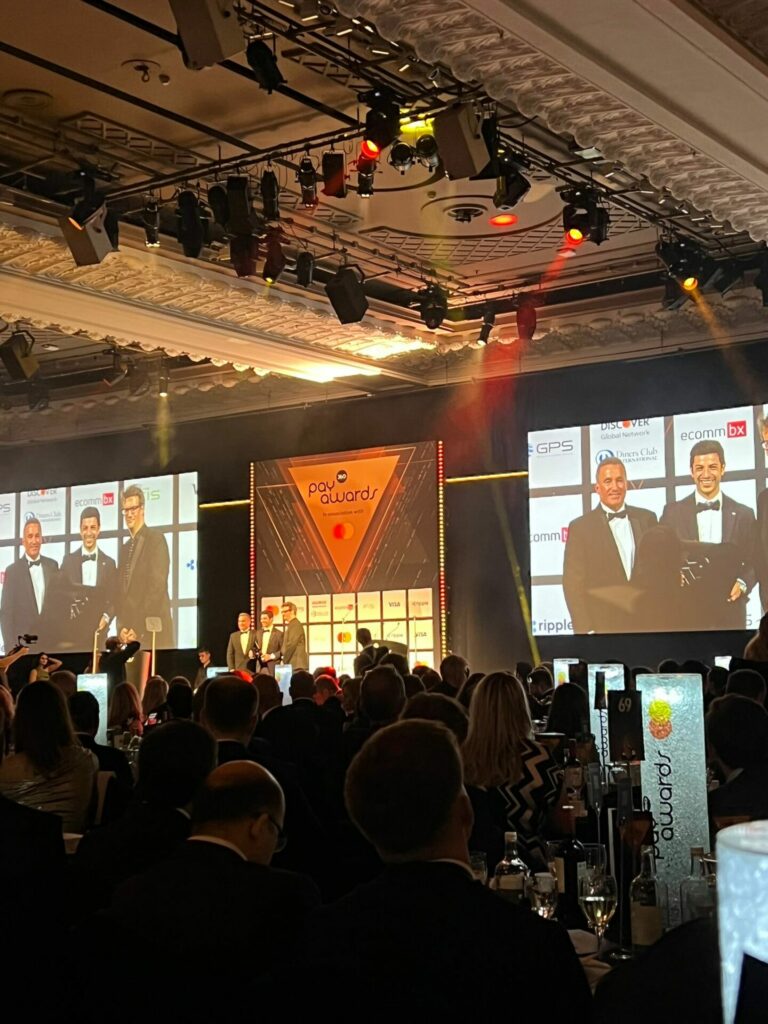My key operating principle is: Chill out and relax.
In a recent interview between Phil McGriskin, CEO of Vitesse, and Jason Hartman from Authority Magazine, Phil shares his experiences in building businesses and some tips on succeeding in fintech.
Can you tell us a bit about your ‘backstory’ and how you got started?
I had sold my business which focused on collecting money or “payments in” on a global basis. It became clear that there were still multiple areas within the “money out” payments arena that was very inefficient and not getting any attention. The incumbent providers for the services Vitesse is offering to our customers are the banks. We had seen businesses compete very effectively against the banks in the payments arena so we identified a specific vertical — insurance — and went after it.
Can you share a story about the funniest mistake you made when you were first starting? Can you tell us what lessons or ‘takeaways’ you learned from that?
Funniest mistake… “Funniest” and “mistake” have to be two words I typically find do not go too well together… maybe in retrospect, there could be some humour in the following. However, at the time, this was anything but funny.
Back in 2004, in my first business, Envoy, we were making our first foray into Alternative Payment Types (APMs) — basically any payment instrument that was not a main brand credit card, so “non-card” types such as Giropay in Germany, IDeal in the Netherlands and so on. These payment methods were all new to us, and each payment type was different to the next — both in terms of how the user interacted with them, and what type of security/payment certainty came with each payment type as well as how they worked technically and operationally. We launched our very first one of these payment types to great fanfare. From day one, the volumes were pretty decent but they very quickly went through the roof, with one retail brand and one customer, in particular, driving some quite astonishing volumes (and therefore revenue). It continued to accelerate.
It wasn’t until the end of the month and after we had reconciled these transactions back to the actual balances in the account (a costly delay mistake, one we obviously learned from) that we realised that almost every transaction that had been made had the same error. That error was a credit in the customer’s favour, without the corresponding debit to the customer’s account. We basically subbed a corporate customer’s customers to spend what they wanted for a month, due to a technical and untested error in our integration. The corporate customer was obviously very happy. So was their customer. Me, less so… But we learned a valuable lesson about testing end to end, with physical settlements always included. And that has helped us avoid errors multiple times since… Every cloud and all that…
Are you working on any exciting new projects now? How do you think that will help people?
We have several products and partnerships that will help people on a number of levels. I’ll give you one insurance-related innovation and one from our payroll vertical.
- We have been working with some forward-thinking Managing Agents and Delegated Coverholders to bring Visa Direct to the insurance vertical here in the UK and Europe. This is to complement our already market-leading claims payment portfolio of pay-to-bank account, cheques, eCheques, e-wallets etc. Visa Direct is a network that allows safe, convenient, real-time funds delivery directly to financial accounts using card credentials. Over 3 billion cards are enrolled. For customers, receiving claims funds in real-time is valuable because they can get repairs made and life back underway instead of waiting several days for a cheque to arrive and then clear. Vitesse is working with Visa (Direct) and most recently Mastercard (Send) to enable seamless payment choices for instant payments of claims. We will continue to search for and add new innovative payment types that make life easier for our customers and for their customers.
- Earned Wage Access (EWA). A brilliant way of allowing an individual to access salary/wages mid pay period. “Salary on Demand” is another description. Customers are looking for flexibility around how and when they receive their wages. EWA provides this flexibility by allowing a customer to draw down from their salary prior to normalised payday. Typically when a mid-period wage drawdown is required, it is needed urgently. This requires fast payment, globally. By partnering with top cloud payroll providers, Vitesse is helping to power global EWA solutions for some of the top brands globally, giving their staff much appreciated financial freedom and flexibility.
Thank you for that. Let’s now shift to the central focus of our discussion. Extensive research suggests that “purpose-driven businesses” are more successful in many areas. When your company started what was its WHY, its purpose?
There’s absolutely no point in going to market without a very tight proposition. The overarching message? I want Vitesse to be the payment partner of choice for the insurance industry. With over $4trillion paid out in claims every year, and with the bulk of that running through inefficient, legacy style payment processes, there is a mass of scope for Vitesse. Vitesse’ why, our purpose, is to take those payment processes apart and build them back in a manner that meets the digitisation agenda the insurance industry is undergoing. Or even more simply, keep insurance payments up with what is going on in the rest of the world. You wouldn’t wait a week for payment from Amazon, and then wander down to the bank to cash a paper cheque… Why is it ok in insurance? Short answer… It’s not ok, and Vitesse is going to change it.
Do you have a “number one principle” that guides you through the ups and downs of running a business?
There are lots of scholarly pieces of advice for running a business. Most of them are probably right. But I’m a pretty driven individual so nothing relating to pushing hard or moving fast and breaking things… My key operating principle is: Chill out and relax.
It’s definitely not a usual business principle. But it’s one that works for me and, in my opinion, it’s one of the few things in life that is truly yours to control.
In business, there are so many things that are going to happen out of your control. Good things, terrible things, really annoying, stupid things that just keep on occurring. The worst thing to do in these cases is to project everything that happens straight back into the business and onto your colleagues, or even onto yourself for that matter. Just relax… It sounds stupid but it’s such an important rule to live by.
Getting stressed, and taking things personally are definitely things that make you weaker, they make you less able to respond to issues appropriately. Take the time to think about it, and act with a clear head.
If a fellow business leader would ask you for advice about whether to bootstrap or to look for VC capital, how would you help them weigh the pros and cons of that decision?
In the UK, we have investment schemes such as the Enterprise Investment Scheme and the Small Enterprise Investment Scheme. Both of these initiatives have been excellent at driving private capital into the very early stage investment arena. And in turn, they have fostered quite a strong privately funded start-up/angel investment culture in the UK. I think that if a business leader was looking for my advice on funding a well-defined start-up business in the UK and they can access smaller levels of private capital to bootstrap, then it is typically a more advantageous way of getting something off the ground. Once you have a product/market fit and some runs on the board, it is much easier to have a conversation with VCs.
What measure do you use to determine the value of a company? What advice would you give to other leaders about how to get an optimal evaluation of their business?
I don’t think it’s as simple as X or Y times revenue…
In a busy market, there are usually market comparables (other company valuations) that create some sort of value level. But following on from that I think the TAM, the competition, your position in the new world once your amazing product has bedded in plus current run rate, forecast run rate, time to sale/time to revenue all contribute. Business investors want to be focusing on the size of the market and the size of the prize. Get them excited. People need to be really, really excited about your prospects to break things out of the X or Y times revenue cookie-cutter approach.
What would you advise to a founder who initially went through years of successive growth, but has now reached a standstill? From your experience do you have any general advice about how to boost growth and “restart their engines”?
Listen to your customers. Your customers will be telling you something — either verbally or non-verbally. Act on it.
Don’t be afraid to pivot. But think and assess before you “leap”.
Or, if the standstill is simply down to something like Covid that needs waiting out, then hunker down and see my “business principles” comment above. You’re the leader. Act like it.
What are the most common financial mistakes you have seen other businesses make? What should one keep in mind to avoid that?
Overspend and not enough time is given in advance to fundraising, and running the tank close to empty.
It’s a fact that a start-up business will have to spend more than they earn in order to get off the ground. So saying “don’t spend beyond your means” isn’t going to work.
But its crucial expenditure is closely monitored and limited and the value of funding is recognised. I think that some of the lofty valuations of late, and the large funding rounds that have subsequently taken place have led to recipients losing track of the true value of money. The big thing to keep in mind is the value of money, the work involved in bringing funding in, and the need to control how it’s spent.
Ok, here is the main question of our discussion. Based on your experience and success, what are the five most important things one should know in order to succeed in the modern finance industry? Please share a story or an example for each.
- Know your customer (know your market).
- Listen to your customer — These first 2 “things to know”, and the fact an ex-employer of mine didn’t know them, were what allowed me to start my first business. I was working in a great payment company. That business was focused on a certain vertical based primarily in the US (back in the early 2000s) and its nascent proposition and therefore customers were US-focused. However, the vertical was growing globally exponentially. The business knew the vertical in the US, but they didn’t know it outside of the US. And they were not listening to what their customers were saying they wanted. As a Sales Director for non-US, it made my position untenable. I didn’t have the product that customers were asking me to sell to them. Nor did I have any indication the products would be forthcoming. That gave me the impetus to start a business to deliver what my customers were asking for but which I could not deliver in the current business. It enabled (me) a competitor to that business, and it ended up breaking a very strong initial hold on a fast-growing payment vertical. In the long run, they were two very costly things for that business. Not adequately knowing their market, and then not listening to their customers meant they missed out on all the growth of a vertical in which they were the leader.
- If it was easy, everyone would be doing it. Keep pushing. I’m sure I don’t really need to give examples on why to push. Just never give up… It’s simple.
- I refer yet again to my core business principle “Relax!” Obviously, you need to work hard and you need drive and you need to drive people. But you can do that without stressing every element and without projecting stress into the business. You need to keep in control and remain measured. In an early business (although slightly similar this is different to the horror story above) we had an issue where we double paid a large payment file on behalf of one of our customers. The amount was huge for the balance sheet we were carrying. There was a good chance that it could have taken us down. And the task to retrieve the funds was daunting. Multiple individuals, hundreds of payments around the globe… The amount of stress attached to that whole situation was horrendous but thankfully, between myself and my business partner, instead of falling in a heap, we were able to break the problem into manageable chunks, we dealt with customers, we dealt with internal process issues that enabled the problem in the first place and then we dealt with the doubled paid individuals. We didn’t get it all back. But we got the majority of it. Crucially, although the issue was ours, we ended up with a stronger bond with the customer. Keeping it cool, having a plan and following it through when the heat was very much on, gave our customers the hard proof we were in it with them, for the long run, no matter what. It was also a great example for our staff to see first-hand how to handle a major event. Excellent learnings and despite a small financial loss to us, it ended up as positive overall.
- People, people, people. I don’t do anything “myself”. It’s all team. Always. Make sure you look after people. People (of which you are one) have the same expectations, requirements, drivers, rights and so on and so on, as yourself. So, treat people like you would like to be treated. You’ll have a fantastic team and those brilliant ideas you cannot deliver on your own can actually become reality.
Which tips would you recommend to your colleagues in your industry to help them to thrive and not “burn out”?
I’m probably oversimplifying but I have to refer readers again to my core business principle. Relax.
Don’t take it personally, don’t project it and make sure you take your breaks. It’s easy to let the stress override and show externally. And it’s easy to let the breaks slide when the heat is on. That’s the most dangerous time to let things slide.
Stress and no breaks are a dangerous combination that leads only one way. Don’t fall into that trap.
You are a person of great influence. If you could start a movement that would bring the most amount of good to the most amount of people, what would that be? You never know what your idea can trigger. 🙂
I would love to help young disadvantaged kids make the right decision and get the right opportunities in life, through better-funded youth sport and education and mentoring programs.
Read the article here








